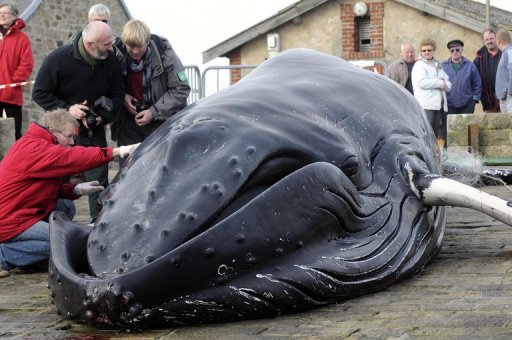Our seashores are drenched with discarded plastics, particularly plastic bags and water bottles. What is astonishing to know is that this very same debris often washed ashore could be found in our deep waters as well. Deep-sea mammals such as whales, for instance, digest this debris, which is often the cause of finding them washed ashore lifeless. Floating plastic bags simulate a swimming jellyfish, which is a favorite delicacy of the green turtle. Ocean going vessels, be it cargo or passenger, are mainly responsible for this deep- sea debris. There has to be a way for maritime vessels to recycle used plastics and water bottles so as to avoid pollution of our oceans and shorelines, and help preserve marine wildlife that have been ingesting a large portion of these plastics over the decades.
An alternative option could be to manufacture thicker plastic water bottles instead, as they can be used and reused several times over, without adding to the current health hazard to marine life. Empty bottles should not be left on the shore, neither should they be disposed off in the ocean. In all green buildings, employees and their cleaning staff dispose off the used plastics and water bottles properly into recycling bins. However, some scientists contend that plastics never decompose completely which means that recycling plastic can only help up to a certain extent. Plastic, therefore, must not be replaced with yet another plastic product, rather, with a fully biodegradable product instead. Items made of plant-based materials can turn into food for marine life when tossed into the ocean.
Narayana Peesapaty, a researcher from India, developed edible spoons made of compressed millet, rice, and wheat flours in 2010. They contain no toxic preservatives and come in a variety of flavors: sugar, ginger-cinnamon, ginger-garlic, cumin, celery, black pepper, mint-ginger, and carrot-beetroot. The spoons have a shelf life of 2-3 years. The spoons can be thrown out to sea and will degrade in 4-5 days after your picnic at the beach. In doing so, you provide edible food for marine life as well.
A gelatinous water blob labeled as “Ooho” made by the Skipping Rocks Lab of the UK, brainchild of Pier Paslier and Rodrigo Garcia Gonzalez, is an edible 100% biodegradable water blob made of brown algae that encloses within the blob a gulp of potable water.
But altogether, the way I see it, marine plastic pollution is now much too pervasive. Indeed, based on the study, “Proceedings of the National Academy of Sciences (PNAS),” the finding was that at least 88% of the Earth’s ocean surface is polluted with plastic debris. Researchers from both the University of Cadiz, Spain, and the University of Western Australia conducted this study. Plastic replacement is just half of the solution; the other half is plastic cleanup of the accumulated debris in the oceans and waterways.
There are patches of successful entrepreneurial efforts here and there to replace the use of plastic, but perhaps what we need is a global solution to solve a global problem, to turn the tide against usage of non-biodegradable plastics that somehow unwittingly end up in our oceans and shores.
The major plastic manufacturers themselves must take the lead to develop and implement massive green technology to clean up the planet’s oceans of discarded plastic products that have now turned into deadly ocean debris to marine wildlife.
The author is a graduate of Political History from U.C. Berkeley, CA. Prior, she graduated from Assumption College (San Lorenzo, Makati) majoring in Business Administration and Entrepreneurship.
